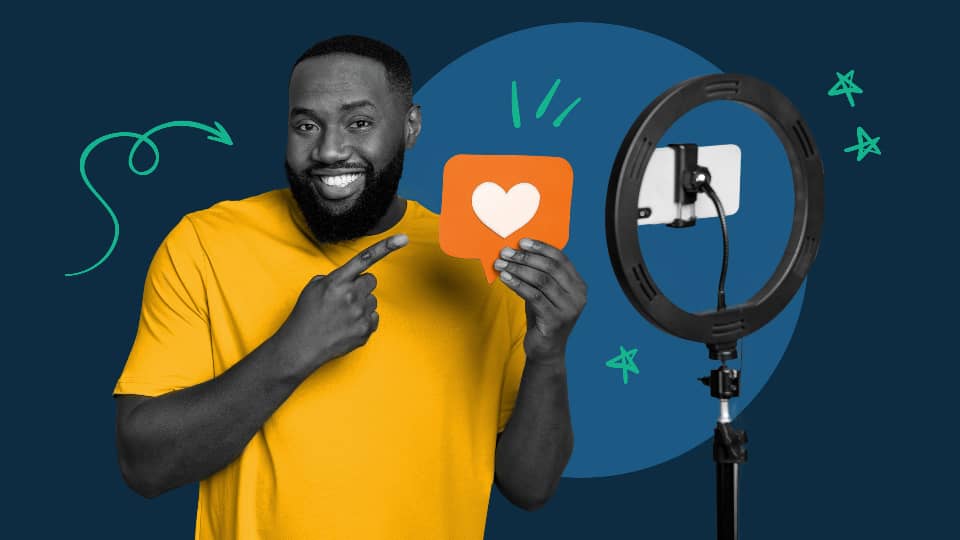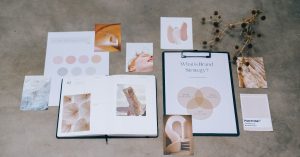Influencer marketing has become a dominant force for African brands. According to one survey, 60% of African millennials trust online influencers more than traditional ads. In Ghana and beyond, marketers recognize that audiences engage more with authentic stories than with blunt advertising. We unpacked what influencer marketing is by showing real campaigns and best influencer marketing examples in Africa, from viral Instagram influencer marketing examples to creative B2B influencer marketing examples in professional sectors.
These case studies illustrate how brands partner with creators in strategic ways. Each example shows how influencers were chosen and briefed to align brand messages with personal voices.
The Power of Influencer Marketing in Africa
Influencer marketing in Africa has evolved from simple product shout-outs to powerful cultural storytelling. What once seemed like a social media trend is now a cornerstone of how brands connect with their audiences, drive sales, and shape perception. According to a GeoPoll report, over 70% of African social media users say influencers affect their purchasing decisions, proof that the voice of influence is no longer just loud but trusted.
Africa’s digital ecosystem has a unique dynamic. It is a space where community, identity, and commerce intersect seamlessly. In countries like Nigeria, Kenya, Ghana, and South Africa, influencers are not just content creators; they are cultural translators. They speak the language of their followers, understand local humour, and reflect the aspirations of a digital generation that values authenticity over corporate polish.
6 Successful Influencer Marketing Campaign Examples in Africa
Here are influencer marketing examples from African markets, highlighting creative campaigns that blend local culture and storytelling.
Safaricom’s Valentine Campaign (Kenya)
Kenyan telecom giant Safaricom ran a Valentine’s Day campaign called #AccessorizeWithLove. It positioned Safaricom phones and accessories as romantic gifts, and it leveraged influencers on multiple platforms. Safaricom engaged dozens of nano- and micro-influencers on Twitter and Facebook, plus creative TikTok personalities, to produce fun videos and posts.

The result was thousands of unique posts generating over 4 million total impressions. By letting influencers co-create the content instead of filming a scripted ad, Safaricom generated authentic buzz around its products.
Nigerian Beverage Campaigns: Pepsi and Budweiser

Nigerian drink brands enlisted pop stars to reach young audiences. In 2020, Pepsi Nigeria launched #YourLifeMaxAm, a motivational campaign during COVID-19 featuring Afrobeats icons (Tiwa Savage, Burna Boy, Wizkid), sending inspiring messages. Viewers saw their favourite artists at home (even in pyjamas), which felt real and relatable. Pepsi paired these celebrity posts with micro-influencers to widen its reach.

Similarly, Budweiser Nigeria ran #SmoothForNaijaKings with TV host Ebuka, singer Mayorkun, and artist Teni. Each influencer styled themselves as a “smooth” king, and fans joined in by posting their own smooth-looking photos under the hashtag. Both campaigns drove strong engagement and user-generated content for the brands.
OPPO’s Big Brother Collaboration (Nigeria)
Smartphone brand OPPO leveraged BigBrother Naija Reality TV show influencers with its #OPPOxBBN campaign. Instead of only relying on typical traditional and digital ads, OPPO provided its devices to housemates on Big Brother Naija, who then used OPPO phones for selfies and video calls in the house.

With millions of viewers following the show, every photo and video implicitly promoted OPPO. Fans of the show reacted enthusiastically, and OPPO saw spikes in web traffic and interest as the housemates “endorsed” its camera features in real time. This innovative approach of using TV celebrities as de facto brand ambassadors gave OPPO massive exposure without a standard commercial.
Kenya Tourism Board – #TembeaKenya Campaign (Kenya)
Public agencies are in on influencer marketing, too. The Kenya Tourism Board (KTB) ran the #TembeaKenya campaign (“Tembea” means “Explore”) to encourage domestic travel. KTB partnered with travel bloggers, photographers, and media personalities to post rich travel photos under this hashtag.
A notable activation was radio host Maina Kageni’s nationwide road trip: for 52 weekends, he toured Kenyan destinations and shared daily updates via social media. By tagging #TembeaKenya on Instagram and Twitter, creators made Kenyan parks, markets, and culture look exciting and accessible. This organic content brought more local attention to Kenya’s tourism opportunities than a typical advertising push.
Vivo Activewear – Fashion Collaborations (Kenya)
Kenyan fashion label Vivo Activewear has made influencers part of its design process. The brand regularly invites fashion bloggers and TV hosts to model its clothes on Instagram. In some cases, Vivo even co-creates products with them. For example, the “This is Ess” capsule collection was designed in collaboration with blogger Sharon Mundia.
Vivo then unveiled the collection on Mundia’s social channels, using her credibility to showcase the line. By tying product launches to popular personalities, Vivo amplified its brand story: fans tuned in because they follow the influencer’s own style, not because of a traditional ad.
Topicals Skincare Influencer Trip (Ghana)
Even global brands adapt to African tastes. US skincare brand Topicals, known for serving Black consumers, took 12 Black influencers on a brand-sponsored trip to Accra, Ghana. Attendees (including fashion stylists and reality-TV personalities) documented the cultural experience and Topicals products on TikTok and Instagram. The response was overwhelmingly positive; viewers felt like they were part of the journey.

One TikTok viewer noted, “I’ve never owned a Topicals product, but guess what I went and got today,” after watching the trip clips. By aligning Topicals with a genuine travel experience and the African diaspora (rather than just pushing product), this campaign sparked real interest and brand credibility.
Influencer Marketing Campaign Examples in Africa
Across these cases, one insight that stands out is that authenticity sells. Each campaign gave influencers room to create meaningful stories instead of just reciting ads. This approach builds trust; audiences respond to influencers’ personal voices. It applies even in traditionally “dry” industries.
For example, Ghanaian insurance and pharmaceutical companies now run influencer-led educational campaigns that prioritise credibility over mere reach. African B2B firms and professional services are similarly exploring influencer partnerships to share expertise and build reputation.
These influencer marketing campaign examples show how African brands (and even government agencies) harness creativity and culture. They illustrate that the how of influencer marketing is as important as the message. The real takeaway is that storytelling through trusted personalities is the currency of engagement in Africa. By learning from these campaigns, marketers can design their own standout strategies that resonate with local audiences.
At DottsMediaHouse, we have mastered the art of translating influence into impact. Our experience across industries and platforms has taught us that every campaign must begin with empathy, strategy, and cultural understanding. We do not just match brands with influencers; we curate partnerships that amplify purpose and deliver measurable outcomes.
The future of influencer marketing in Africa is not about chasing trends; it is about leading them. And for brands ready to take that step, working with the right agency is essential. That is where we come in. Let us collaborate in building influence that lasts.





